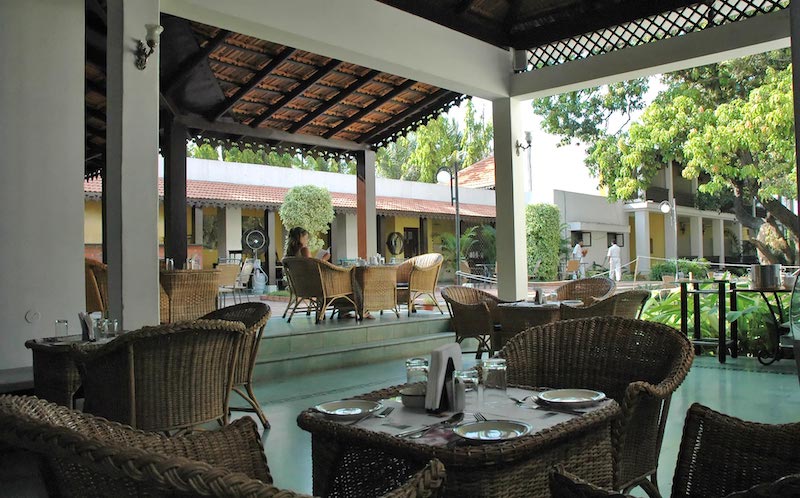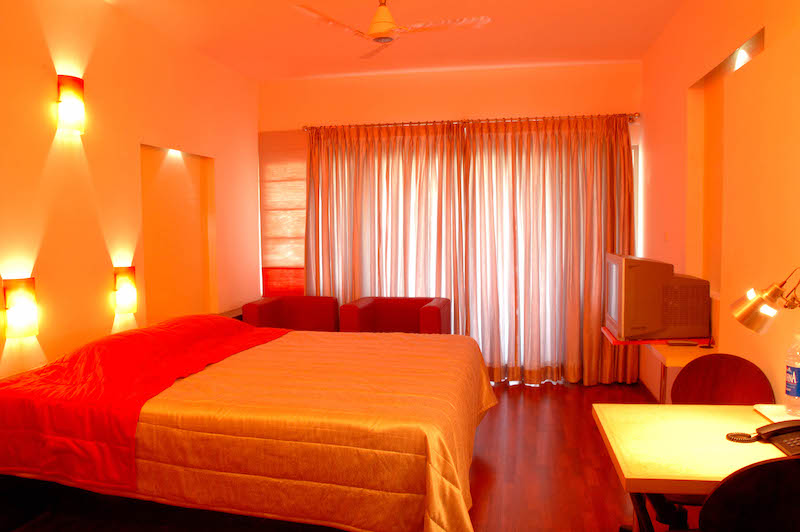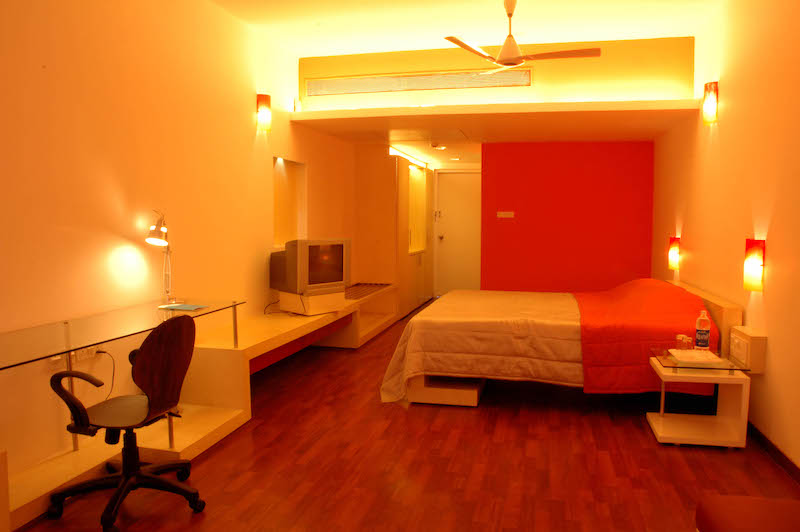20 Differences Between Hotels And Motels
Hotels and motels are two popular types of accommodations for travelers. Though both offer lodging, they have distinct differences in their design, services, and target audience. Understanding these differences helps travelers choose the best option for their needs. Knowing what to expect can enhance your travel experience and make your stay more comfortable.
1) Location and accessibility of motels
Hotels are often found in bustling urban areas, near airports, or popular tourist attractions. They cater to travelers seeking convenience and accessibility. Motels, on the other hand, are frequently located along highways or rural roads. Their locations are ideal for road travellers who need a quick stop while traveling long distances.
2) Architectural design
Hotels usually have large, multi-story buildings with interior hallways. Guests enter through a lobby or reception area. Motels are generally one-story buildings with rooms that open directly to the outside. This layout provides easy access to parking and is ideal for travellers who prioritise convenience.
3) Price range
Hotels are generally more expensive than motels. The higher price reflects the added amenities, services, and luxury hotels typically offer. Motels are more affordable, making them suitable for budget-conscious travelers. A motel offers basic accommodations at a lower cost, perfect for short stays.
4) Room size and amenities
Hotel rooms tend to be larger and more luxurious, often featuring premium amenities such as minibars, room service, and plush bedding. Motel rooms are smaller and more functional, focusing on essential needs such as a bed, bathroom, and basic appliances like a microwave or mini-fridge.
5) Services and staff
Hotels usually employ a larger staff to provide services such as concierge assistance, room service, and daily housekeeping. This creates a more personalized and high-end experience for guests. Motels, however, employ fewer staff members and offer limited services. Guests typically clean their rooms, and there is no room service.
6) Length of stay
Hotels cater to both short and long stays, offering amenities like business centers, pools, and spas. They are ideal for tourists, business professionals, or anyone looking for a comfortable place to stay. Motels are more suited for short-term stays. They are perfect for guests needing a brief overnight stop while traveling.
7) Target audience
Hotels cater to a wide range of travelers, from tourists to business people. They are designed to meet the needs of both families and solo travelers. Motels attract travelers seeking affordable, no-frills accommodations, especially those on road trips. Their primary appeal is to individuals looking for short-term, budget-friendly stays.
8) Parking facilities
A significant difference between hotels and motels is parking. Hotels, especially in urban areas, often have limited parking options. Guests may have to pay for parking in nearby garages. Motels usually offer free parking right outside the room. This convenient access to parking is one reason why motels are favoured by road trip travellers.
9) Room access and security
Hotels often provide better security with 24-hour surveillance, locked entrances, and on-site security personnel. Rooms are accessed via interior corridors, adding a level of privacy and safety. Motels, by contrast, allow access to rooms directly from the outside. This layout means rooms are more exposed, and security is often less stringent.
10) On-site dining options
Hotels frequently feature on-site dining options such as restaurants, cafes, or bars. These amenities provide guests with the convenience of meals without leaving the property. Most motels, however, do not offer on-site restaurants. Motels may offer vending machines or limited continental breakfast options but generally lack full-service dining.
11) Amenities and recreational facilities
Hotels often include a range of recreational amenities such as fitness centers, spas, and pools. Some hotels even offer entertainment options like live music or movie screenings. Motels generally offer fewer amenities, often focusing on basic necessities like clean rooms and essential appliances. Guests may need to look outside the motel for additional activities.
12) Booking and check-in process
Booking a hotel room is usually more formal, with reservations made through websites, apps, or travel agents. The check-in process may involve providing identification and a credit card for incidental charges. Motels often allow guests to check in directly at the front desk without formalities. Some motels even offer self-check-in or direct room access for walk-in guests.
13) Pet policies
Many hotels have strict pet policies, often restricting certain breeds or sizes of animals. Some hotels provide pet-friendly rooms with additional fees or restrictions. Motels are generally more relaxed with their pet policies. Many motels allow pets at no extra cost, making them a more pet-friendly option for road trippers traveling with animals.
14) Room turnover and cleaning
Hotels offer daily housekeeping services, ensuring that rooms are cleaned and restocked regularly. This service provides added comfort and convenience. Motels often have less frequent room cleaning, sometimes cleaning only after a guest checks out. Guests staying in motels may need to request additional towels or toiletries if needed during their stay.
15) Check-out procedures
Hotels generally require a formal check-out process, where guests return room keys and may be charged additional fees. Some hotels offer express check-out options, where guests can leave their keys in a designated box. Motels have a simpler check-out process, often allowing guests to leave without interacting with the staff. In some cases, guests may even check out at any time.
16) Conference and event spaces
Many hotels feature conference rooms, banquet halls, and event spaces for business meetings, conferences, and weddings. Hotels are designed to accommodate both leisure and business travelers with these larger facilities. Motels do not offer event spaces and are not designed to host business meetings or large gatherings. Their primary focus is on short-term accommodations.
17) Atmosphere and decor
Hotels generally offer a more polished and luxurious atmosphere, with elegant décor and high-end furnishings. They are designed to impress guests with a comfortable and stylish environment. Motels are more utilitarian in design, focusing on functionality rather than aesthetics. Motel rooms are typically simple and may have minimal decoration, offering a more basic atmosphere.
18) Pricing flexibility
Hotel pricing is often more flexible, with room rates fluctuating based on demand, seasonality, and room availability. Hotels may offer discounts or promotions through booking websites or loyalty programs. Motel prices are typically fixed, offering more consistency and predictability. They are more likely to offer lower rates, making them a good option for budget travelers.
19) Service fees and additional charges
Hotels often charge additional fees for services such as parking, resort fees, or Wi-Fi access. These fees can add up quickly, increasing the total cost of your stay. Motels generally have fewer hidden fees. They are more transparent with their pricing and usually include all essential services in the price of the room.
20) Environmental impact and sustainability
Hotels are increasingly focusing on sustainability, implementing eco-friendly practices such as energy-efficient lighting and water-saving initiatives. Many hotels are striving for certifications like LEED or Green Key. While some motels may adopt green practices, they are typically less likely to have large-scale sustainability programs. Motels generally focus on maintaining basic operations rather than environmental efforts.
Choosing the best accommodation for your needs
The decision between hotels and motels comes down to what you prioritize during your travels. If you seek luxury, a variety of amenities, and convenience, hotels are the better choice. For a budget-friendly, no-frills experience, motels offer an affordable option for short stays. Understanding the differences between the two ensures you select the right accommodation to suit your trip.





